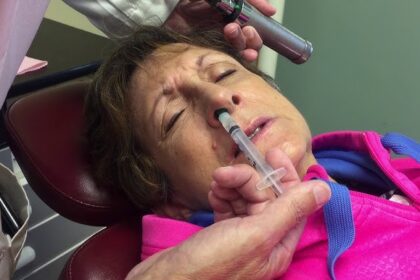Urology focuses on the health of the urinary tract and the male reproductive system, addressing conditions that can affect your comfort, daily function, and overall well-being. From kidney stones to urinary tract infections, urological disorders can vary in severity but often benefit from early detection and proper care. Here’s an overview of prevention and treatment options for common urological disorders:
Common Urological Disorders
Urological disorders can significantly impact an individual’s well-being. Here is an overview of some common conditions within the field of urology:
- Urinary Tract Infections (UTIs): Bacterial infections affecting the urinary system, which commonly cause pain, burning, and urinary urgency.
- Kidney Stones: Hard mineral deposits that can form in the kidneys, often causing severe pain, nausea, and difficulty urinating.
- Benign Prostatic Hyperplasia (BPH): Non-cancerous enlargement of the prostate gland, leading to urinary issues such as a weak stream or frequent urination.
- Overactive Bladder (OAB): A condition characterized by urgent and frequent urination, often accompanied by involuntary leakage.
- Prostate Cancer: A malignancy in the prostate gland, which may present with symptoms or be detected through routine screening.
- Erectile Dysfunction (ED): Difficulty achieving or maintaining an erection, which can be linked to underlying health conditions or psychological factors.
Understanding these disorders and recognizing their symptoms is key to timely diagnosis and effective treatment.
Preventive Measures for Health
Maintaining urological health is fundamental for overall well-being. Here are some preventive measures to contemplate:
- Stay Hydrated: Drinking plenty of water helps flush bacteria from the urinary system.
- Practice Good Hygiene: Regular bathing and wearing clean, breathable underwear support urological health.
- Follow a Balanced Diet: Diet plays a key role in urological health.
- Maintain a Healthy Weight: Carrying excess weight places more pressure on the bladder and pelvic organs, increasing the likelihood of urological issues.
Implementing these strategies into daily routines can significantly reduce the risk of developing urological disorders while promoting long-term health.
Diagnostic and Non-surgical Options
Urology specialists use various tests to diagnose urological conditions. Urine tests check for infections, blood, or abnormal cells. Blood tests evaluate kidney function and detect certain markers. Imaging studies, such as ultrasounds or CT scans, show the structure of urological organs.
Cystoscopy allows doctors to look inside the bladder using a thin, flexible tube. Urodynamic testing measures how well the bladder and urethra store and release urine. These tests help urologists determine the best treatment approach for each patient. Antibiotics help to treat bacterial infections effectively when taken as prescribed. Medications can also help manage overactive bladder symptoms or reduce prostate size.
Surgical and Advanced Solutions
Some urological conditions require surgical intervention. Minimally invasive procedures often provide effective treatment with shorter recovery times. Laparoscopic surgery uses small incisions and special instruments to treat kidney stones or remove damaged tissue.
Robotic surgery offers precise treatment for complex urological conditions. This technology allows surgeons to perform delicate procedures with enhanced accuracy. Advanced treatments include shock wave therapy for kidney stones and laser procedures for prostate problems. Your urology specialist will recommend the most appropriate treatment based on your specific condition and overall health.
Book Your Urology Appointment Today
Prevention remains the best approach to maintaining urological health. Regular urology check-ups help detect problems early when treatment is most effective. Making lifestyle changes, such as drinking more water and maintaining good hygiene, can help prevent some common urological issues. Contact a qualified urology specialist near you today to book your urology appointment.









